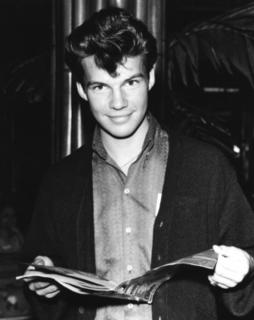You Are What You Listen To

Those who inherited the mantles of the 50s teen idols during the Beatle Era 1963-1970 were three very talented young men with a very eclectic approach to music. All three had some connection to Country in varying degrees but could cross the river into more or less soulful territory in varying degrees. All three have a connection to Burt Bacharach’s music in varying degrees. All three endure professionally to varying degrees.
During the 60s Gene Pitney, B.J. Thomas and Bobby Vee carried on in spite of Beatlemania or, as some might say, because of it. The adage goes something like: huge record sales for one artist or band are good for everybody in the business. Is that why the 60s are a kind of Renaissance for Popular Music? It probably began in 1956, but the message here is that technological advances coupled with new musical advances gleaned from an artistic reservoir for who knows why gave the World something new that enriched its cultural life. It may be a very long time before something like that happens again. The Beatles and Elvis were indeed pioneers; not without influences from the world around them. That they were catalysts may also be part of that equation.
Pitney, Thomas and Vee have their female counterparts in the likes of Jackie DeShannon and Dusty Springfield. DeShannon and Springfield were given the Wexler-Dowd-Marin treatment: “the sound is Memphis, a pop-country-soul blend that comes about as close as you can get to defining the mainstream in contemporary music.” [Stephen Holden] Only one of the three talented men came close to achieving those heights in a similar artistic endeavour. Column started a section entitled Neglected Masterpieces on the main site, inspired by Rolling Stone’s reviews of days gone by. It might also be called “Unpopular Music,” because it isn’t necessarily populated by commercially viable recordings, or even existent recordings. Dusty in Memphis was a commercial flop, although “Son of a Preacher Man” did manage to make it as a single. However, it is now a classic recording and has afforded the extremely talented, albeit insecure Springfield a bona fide place in the annals of Rock/Pop history. B.J. Thomas, who incidentally did a duet with La Springfield on a TV Show theme no less, has given us a similar opus which was the last recording he did for Scepter Records, Billy Joe Thomas, containing the top twenty hit, “Rock and Roll Lullaby.”

What makes this kind of music essential if not quintessential is that all the elements are there. It’s not Lennon-McCartney or Brian Wilson but it is a great bouillabaisse of the musical sea that is American Pop. The intense search for a review from Rolling Stone was to no avail, but AMG gives us this positive review:
Michael Ofjord, All Music Guide
This 1972 album shows B. J. Thomas in good form, capable of intelligently handling a lyric, especially when given worthy material. One of the highlights of the album and Thomas' career is the hit "Rock and Roll Lullaby," which approximates some heavenly Beach Boys-type harmonies to give a subtle yet powerful reading to the tale of a young unwed mother. Adding some fine touches to the well-thought-out production is Duane Eddy on guitar and the Blossoms [Darlene Love's group] on backup vocals. Another cut worthy of special mention is Jimmy Webb's "A Song for My Brother." Thomas delicately sings about the lost innocence of youth, accompanied only by Webb's classically inspired piano playing. It is an intelligent, evocative song, and both singer and player complement each other perfectly. "The Stories We Can Tell," written by John Sebastian, is also an excellent number given special treatment by Pete Drake's subtle and effective steel guitar. There are a few weak moments on the album, such as the beginning of "Happier Than the Morning Sun," a Stevie Wonder tune that starts off dangerously close to MOR until being paradoxically saved by a Wonder harmonica solo. "Are We Losing Touch" also comes close to schmaltz territory, without much lyrical variation on the obvious theme. However, most of the songs are first-rate and arranged skillfully. Thomas himself has a gift for singing soulfully without apparent effort, swirling around lyrics with emotion yet rarely overstating or becoming excessively dramatic. That talent, along with the high quality of material and musicians presented here, makes for a highly listenable pop album.
These days most of Wonder’s classic material would be considered MOR perhaps. Wonder’s MOR is assuredly more listenable than much that is being produced now. “Rock and Roll Lullaby” takes the listener to a place that tells a story and creates an enduring musical recipe for the discernable palate. Not without additional analogy to handmade pasta, it is delicate yet ultimately satisfying. Thomas’ achievement in no way diminishes the music produced by Pitney and Vee. It actually gives it perspective. Both of those men have unique achievements and a rich history all their own. Billy Joe Thomas is a landmark recording that is worthy of attention even after 30+ years.
Anyway, once again it is hoped that Rhino Handmade is paying attention.

Comments